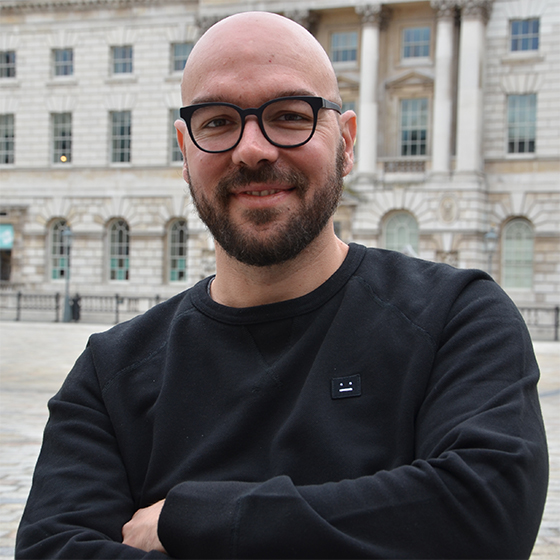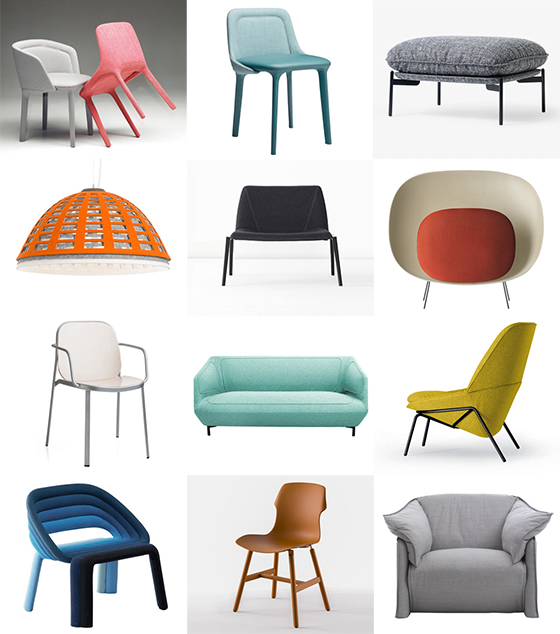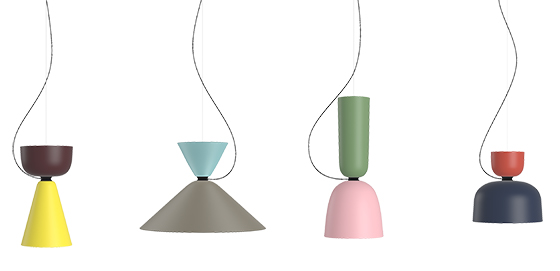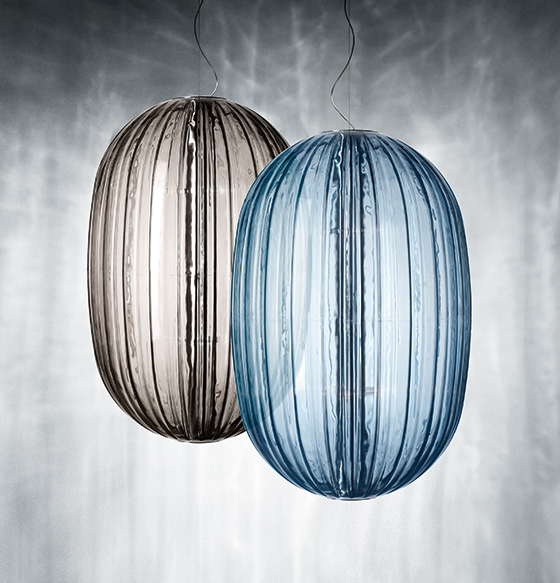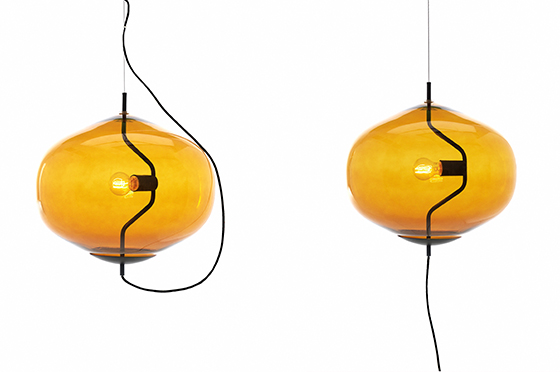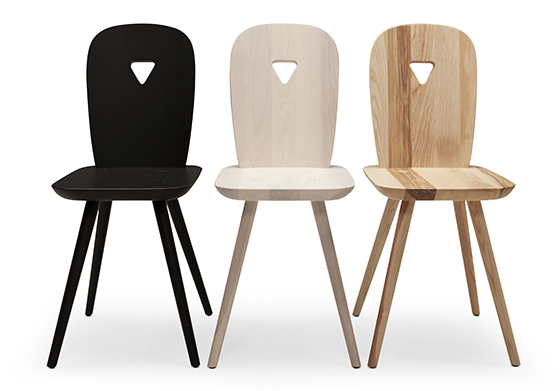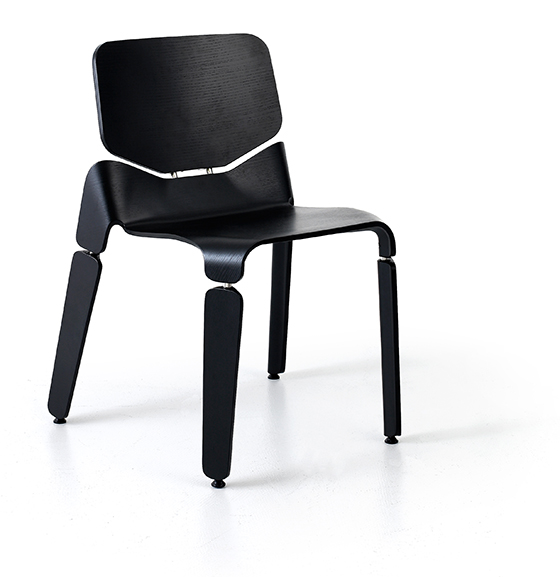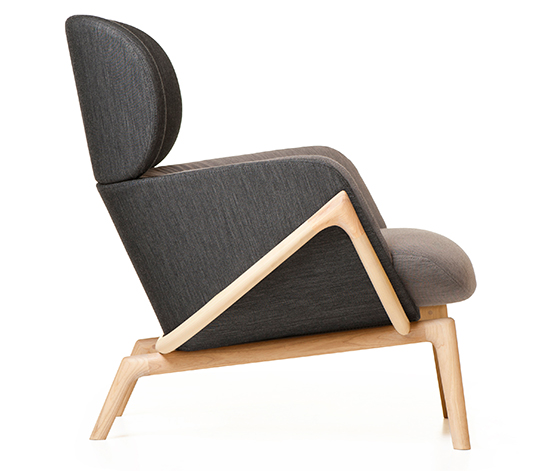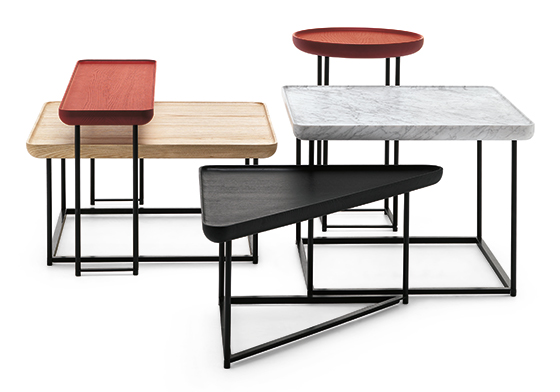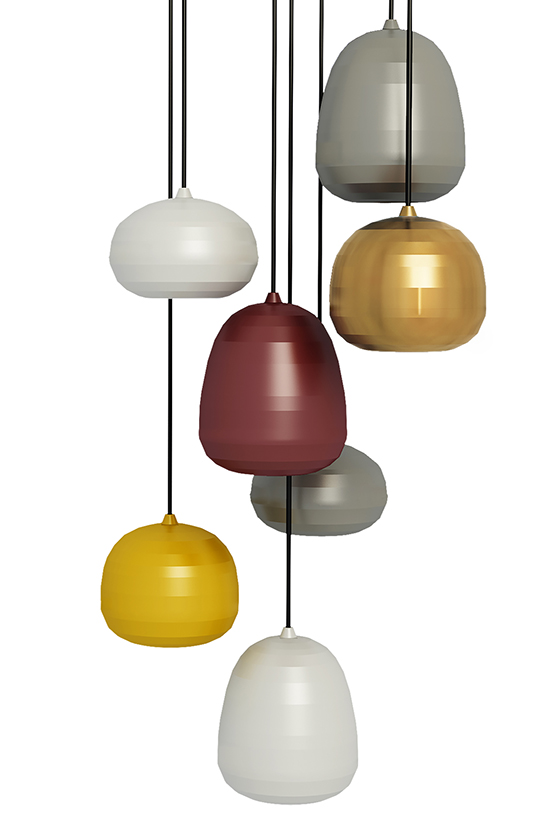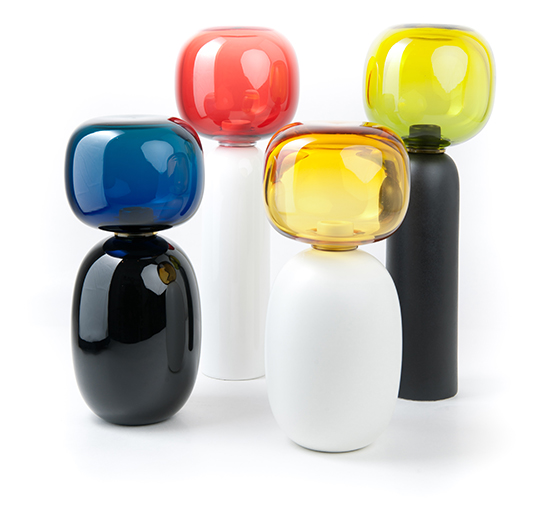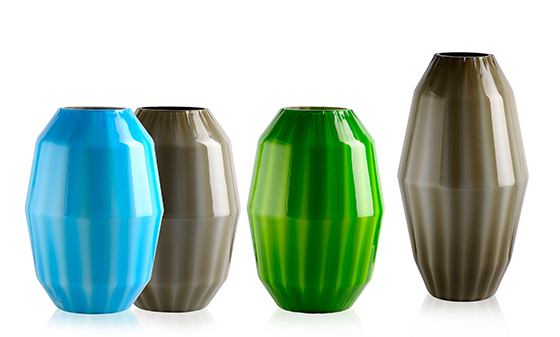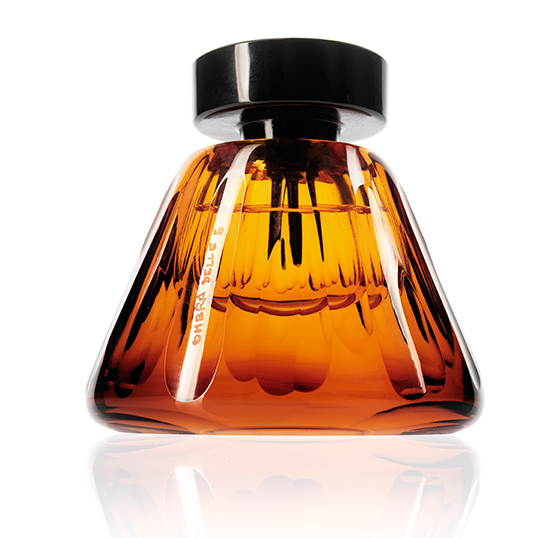Material Tendencies: Luca Nichetto
Scritto da Anita Hackethal
Berlin, Germania
17.11.15
While running offices in Venice and Stockholm, Luca Nichetto never forgets his roots, due not least to his deep respect for craftsmanship. With no sign of slowing down, the Venetian designer’s intention is to create objects that are connected with the life of people and that have a concept behind them.
Luca Nichetto - Photo © Architonic / Anita Hackethal
Architonic spoke to Luca Nichetto about his collaborative approach to design and his choice of materials.
Do you prefer working for manufacturers with inhouse production facilities, where the material choice is usually provided?
I like both. When working with a brand that also has a factory and own production site, you should really understand the company’s background and their history. I used to work very closely with professional glass blowers. It is important to build up a relationship with the people and to adapt their technical know‐how, craft skills and traditions. The most important thing is that there’s always a good relationship and a give‐and‐take process between company and designer. Knowledge‐sharing is essential for creating products that are meaningful.
If you had to confine yourself to a single material for the next three years, which one would you choose and why?
I would probably choose glass. The reason is very simple – I am a romantic person, and growing up in Murano, Venice, it was the first material that I started to work with. My grandfather worked with glass and my mother was also involved in the glass industry, so I have some kind of personal relationship with this material. Glass is really magic, how it is done and how you can manipulate it in a way. It is the kind of material you need to know very well. I like to say that the glass industries were kind of the first 3D‐printing – you know immediately if your idea is going to work or not. It helps to make quick decisions.
Another reason is the current situation in Murano, which is kind of suffering. I would love to help my little ‘glass island’, at least in some small way. Over the past five years, I have been focusing much more on other materials, so it would be nice to find another good glass project.
Any material that you could immediately reject for the next three years?
I am not really into stone – terrazzo for example. I tried using it, but maybe this is because I connect it with my childhood in Venice where the floors are made of stone. I just cannot imagine this material for something else.
Should a designer try out different materials?
I think a designer does not have to be a super expert in everything, but it is good to have experience with all kind of materials. I like to compare a designer with a director of an orchestra. He’s certainly not able to play all the instruments, but he knows how to manage all the people playing a role in the composition.
Do you think there is a trend in materials?
I remember very well when everyone was making tables and chairs out of carbon fibre. So yes, there is. Right now there is this movement of looking back, working with natural materials – wood or ceramic. But at the same time, there is still the trend of 3D‐printing, which is the opposite direction. I don’t subscribe to trends. A designer should understand what the material has to offer and know about the production procedure of both the industrial process and traditional handcrafts.
Robo Chair for Offecct, 2010 - Photo © Massimo Gardone
Torei Side tables system for Cassina, 2012/2014 - Photo © Cassina
Les Poupèes for Gallery Pascale, 2012 - Photo © Jason Strong
Ombra Delle 5 Perfume Bottle for A.W. Bauer & Co. (Fragrance by Ben Gorham), 2015
---
Look out for more Material Tendencies reports. We’ve captured insights from renowned designers and we’re delighted to be able to share them with you in the forthcoming weeks, as part of our ongoing Architonic Trend Analysis series.
---
